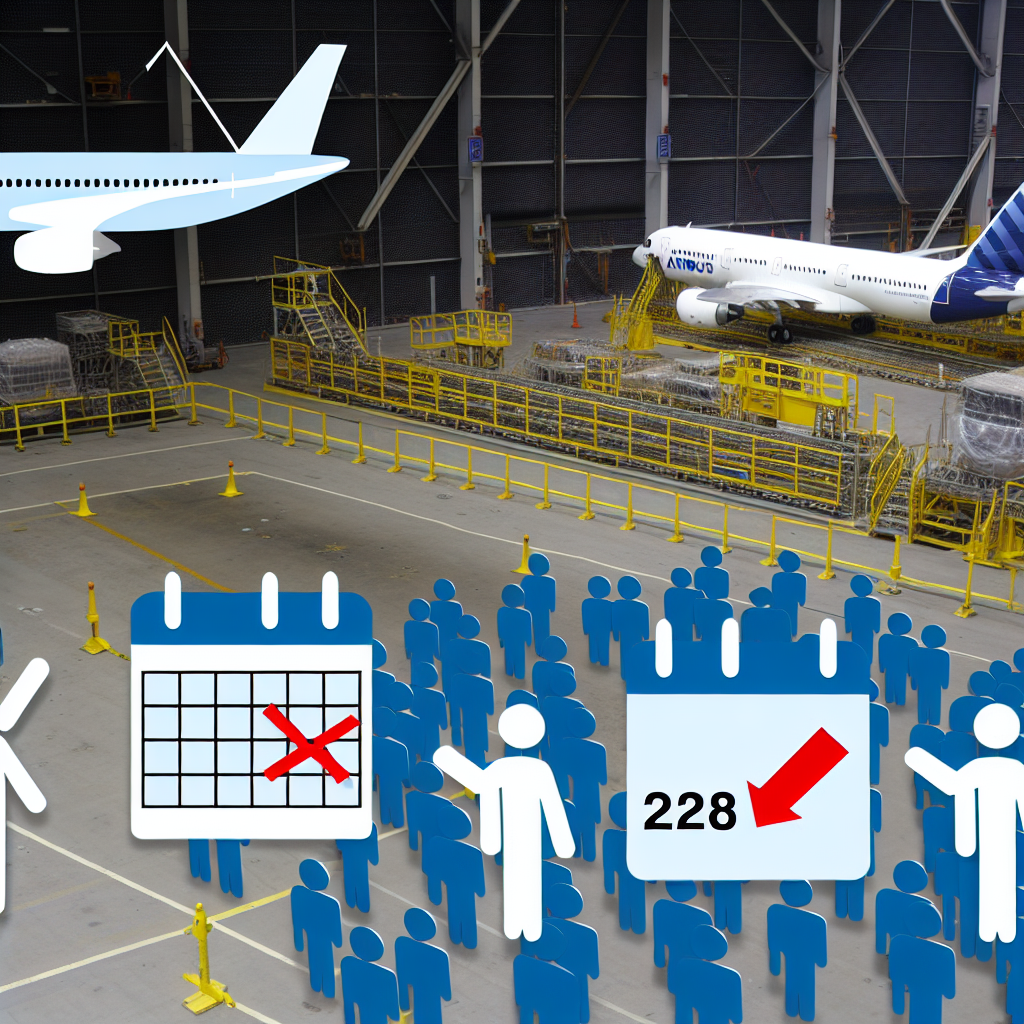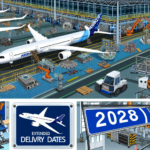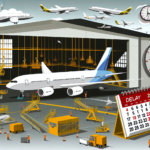TOULOUSE- Airbus has informed airlines, including Air Lease Corp, of extended aircraft delivery delays projected to last through 2027 and 2028, due to ongoing issues in the supply chain.
Airports such as Los Angeles International (LAX) and London Heathrow (LHR) may experience disruptions as Airbus addresses persistent shortages in engines and structural components, according to multiple industry reports.
Airbus has faced significant production challenges since the COVID-19 pandemic, which severely disrupted global supply chains.
While there have been minor improvements, major bottlenecks in engine supplies and critical aircraft structures continue to impede progress.
This situation was reiterated during a recent customer briefing at Airbus’s headquarters in Toulouse, where the company acknowledged the possibility of delays spanning several years.
Executives from various global airlines confirmed to Reuters that Airbus has indicated likely delays for aircraft initially scheduled for delivery in 2027 and 2028.
The notifications have typically been incremental, with updated schedules provided in stages rather than all at once.
A leasing executive noted that aircraft deliveries anticipated for the latter half of the decade are already being flagged for six-month delays.
Leasing companies, such as Air Lease Corp, have publicly reported being notified of delays regarding the A320neo and A321neo families, two of the most popular models offered by Airbus.
Even with typically more flexible delivery schedules than airlines, lessors are encountering heightened challenges in managing fleet planning, which exacerbates the broader aircraft availability shortage.

Targets Under Scrutiny
Industry insiders remark that it is uncommon for a manufacturer to predict delivery disruptions three years ahead.
This advance notice reflects both Airbus’s ambitious production goals and the considerable pressure it faces from airlines seeking clarity on future fleet availability.
Airbus’s objective to increase production of its A320 family jets to 75 aircraft monthly by 2027 remains unchanged, as stated by CEO Guillaume Faury.
However, current production rates stand at approximately 60 aircraft per month. Analysts and customers are questioning whether the manufacturer can realistically meet its revised goals within the expected timeframes, especially in light of ongoing uncertainties with critical suppliers.
An Airbus representative stressed the company’s proactive efforts to work with suppliers to alleviate the current supply chain challenges that affect customers.
Still, engine manufacturer CFM, which is co-owned by GE Aerospace and Safran, has yet to finalize a supply schedule synchronized with Airbus’s growth plans, complicating the outlook further.
Monthly Deliveries Challenges
This month, Airbus has delivered only 32 aircraft thus far and is projected to deliver over 40 by month-end, significantly lower than the 53 aircraft delivered in May of the previous year. From January to April, deliveries saw a year-over-year decline of 5%.
Despite these obstacles, Airbus has reinforced its annual target of delivering 820 aircraft in 2025, marking a 7% increase from 2024.
However, company officials concede that engine supply issues might worsen in the short term before seeing improvement.
Safran has recently indicated progress in tackling supply issues, suggesting that CFM could regain momentum later in 2025.
The ongoing challenges indicate that both short-term and long-term aircraft availability will remain constrained, heightening the global aircraft shortage and complicating fleet expansion plans for airlines and leasing companies alike.
Stay connected with us. Follow us on social media for the latest updates.
Join our Telegram Group for the latest aviation updates. Also, follow us on Google News
Based on an article from aviationa2z.com: https://aviationa2z.com/index.php/2025/05/29/airbus-faces-delivery-delays-until-2028/?utm_source=rss&utm_medium=rss&utm_campaign=airbus-faces-delivery-delays-until-2028



